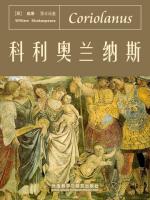书评理解
黄贤霖
Shakespeare's play, written in his later years, is by no means a
portrait of a hero at war. He's describing the temperament and duty of a
noble. The differences between the endowments of the aristocracy and the
commoners are particularly striking -- almost against the tide, since
Shakespeare lived in an era of equality when the third estate took the
political stage. For those of us who grew up with the idea that
"the working people are the most glorious" and that
"democracy is the trend of the world", it may have been hard
to accept at first that such an aristocrat, who hated the rags of the
masses, could be a positive hero while the two populist defenders were
portrayed as rabble-rousers and incompetent. It is easy to forget,
entering the age of universal suffrage, that guardians and producers
have different divisions of Labour, different endowments and different
demands. In the democratic age of Athens and in Shakespeare's plays, the
conflict between aristocrats and commoners is primarily manifested. The
noble guards the city, while the common people produce in the city, this
win-win situation, in special cases, the noble in the battlefield
achievements, returned to the city was abandoned by the people. Such was
the fate of the heroic Coriolanus: instead of being praised, the people,
at the instigation of the two tribunes, threatened to kill him and
banished him. The pleb's reason: he is arrogant to the people.
Shakespeare, however, focuses on Coriolanus's humility after victory,
his devotion to his fellow soldiers, his refusal to accept direct praise
from his commanding officer, and his refusal to win praise by publicly
displaying his wounds. He is such a respectful person, but his words
look down on the "many-headed monster", look down on their
virtue, so it is regarded by the common people as "arrogant".
By no means does Shakespeare use this tragedy to warn us that heroes
also need to be politically tactful. Rather, he is evoking an image of
heroes who are not politically tactful, symbols of pure bravery,
treasures of every community worth defending. He warned rather protected
medians not to try to bend heroes to the will of the people. Heroes are
guardians and saviors, and they have a different world.




 京公网安备 11010802032529号
京公网安备 11010802032529号